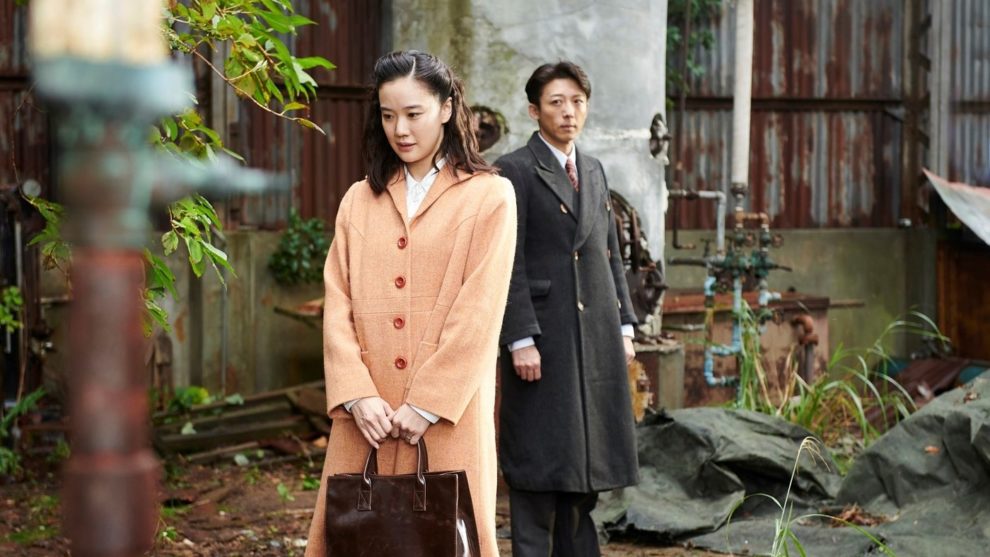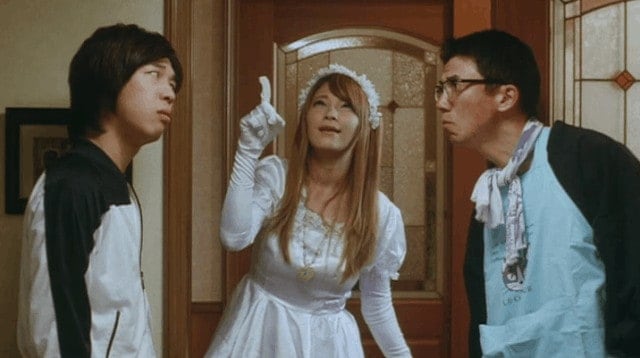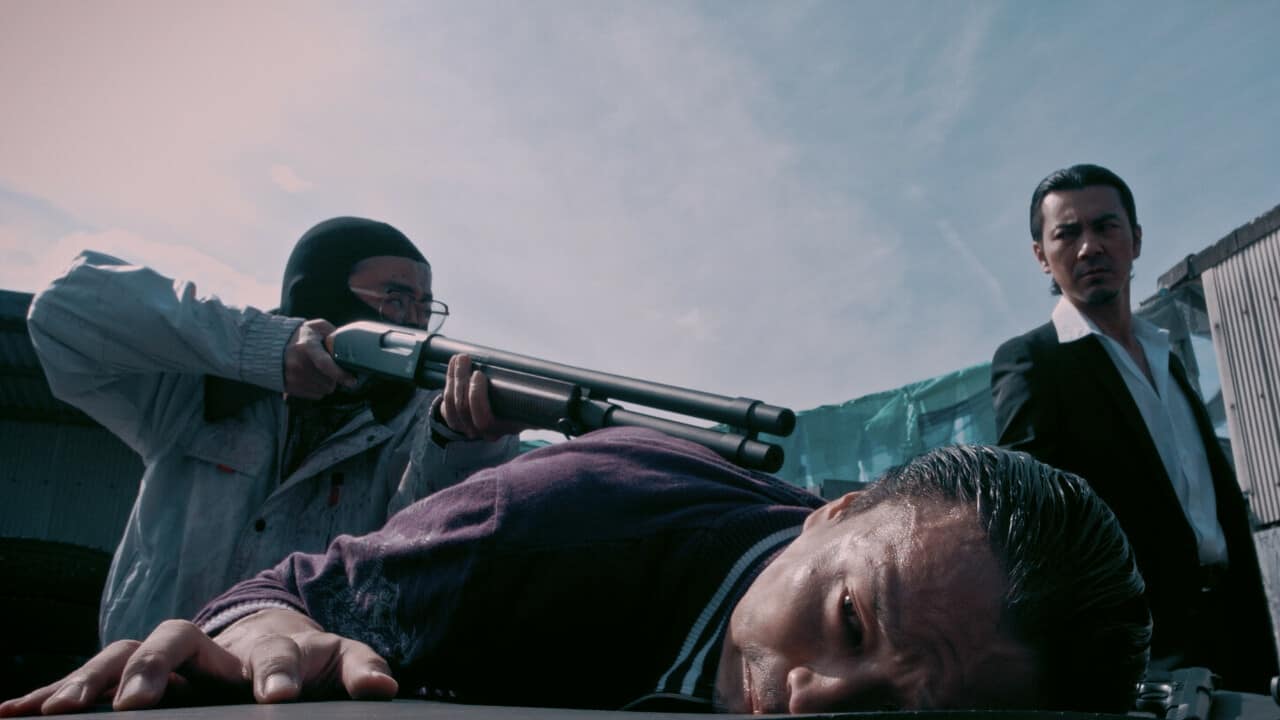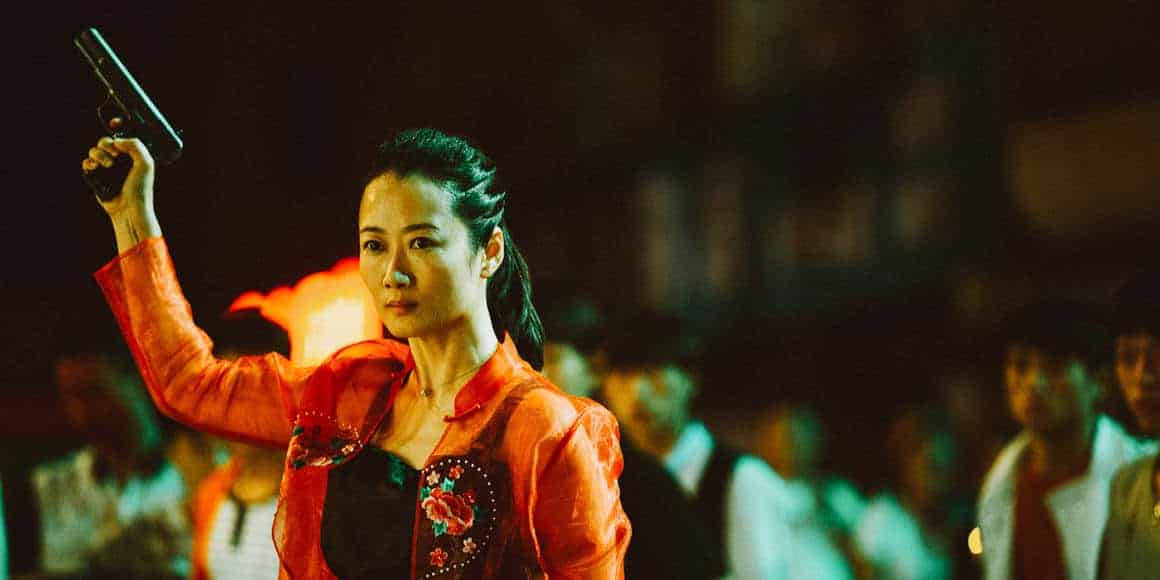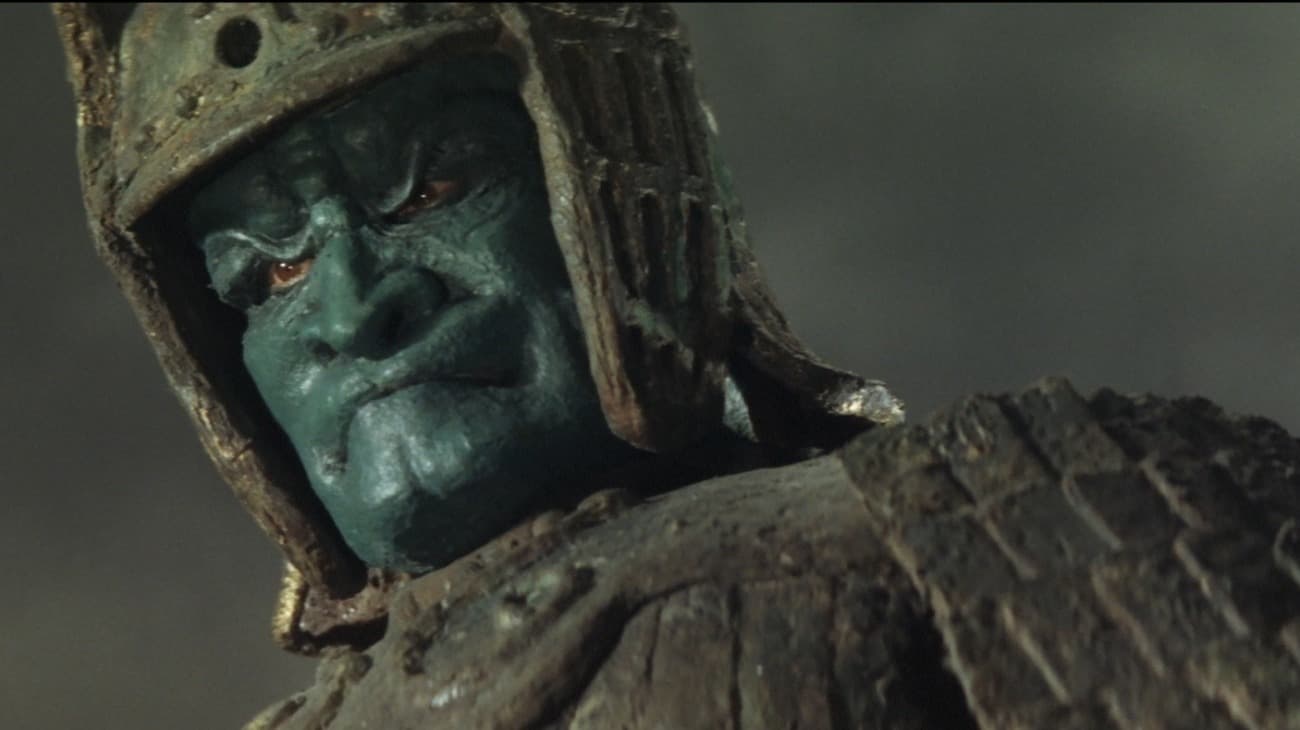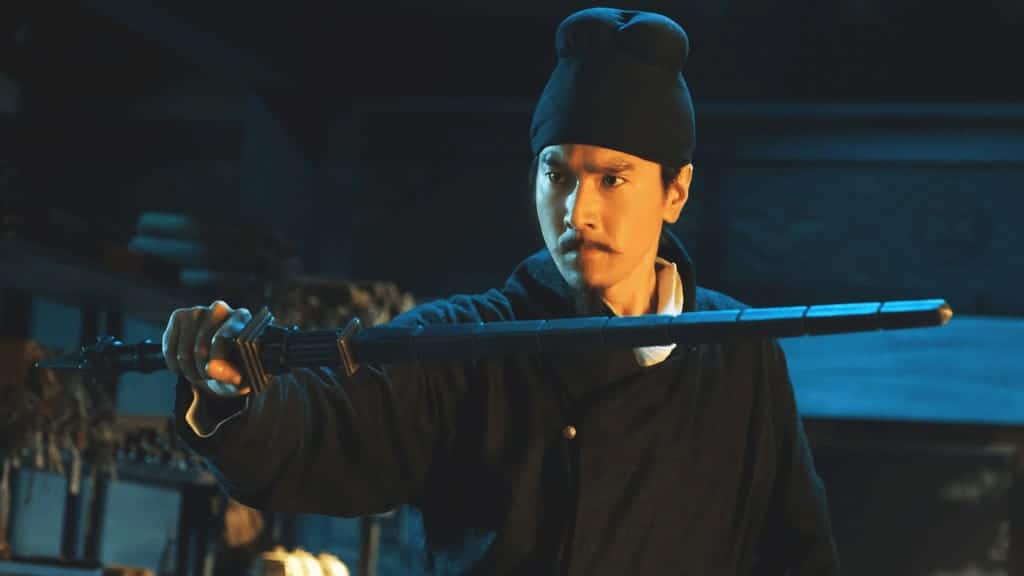This review was largely shaped by a discussion with Goh Ming Siu and Earl Jackson regarding the film.
Winner of the Silver Lion for Best Director at this year's Venice International Film Festival, “Wife of a Spy” is actually a TV-movie produced by and for NHK, which was screened in theaters, however, with a different aspect ratio and color grading. This review is based on the TV version.
“Wife of a Spy” is screening at Five Flavours Asian Film Festival

The script is set in 1940, after Japan had invaded China and joined Germany and Italy as a member of the Axis. Up to this point, successful silk merchant Yusaku Fukuhara has been a man who seemed to have it all: a successful business, the respect of both employees, collaborators and friends, and a trophy wife in the face of beautiful and equally popular Satoko, who has just finished acting in a film Yusaku produced and directed, mainly for her and his friends' amusement.
While the couple enjoy the luxury Yusaku's successful business has granted them, bolstering a cosmopolitan, westernized life style, the country gradually begins to change. Yusaku is the first to realize, as he is paid a visit in his office by the new head of military police, Taiji, who happens to be an old acquaintance and Satoko's former schoolmate. Taiji informs him that a British friend and client is arrested as spy, and actually warns him that the police is also keeping an eye on him. Yusaku is not fazed by the camouflaged “threat” and proceeds on posting bail for his friend, an action that brings even more attention to him.

A bit later, and after a business trip to Manchuria along with his nephew and employee, Fumio, Yusaku starts acting suspiciously, while the fact that he has brought with him a woman upon his return threatens the harmony in his relationship with Satoko, particularly since Taiji is all too eager to share the rumors with her. Eventually, Yusaku's reasons are revealed, and his relationship with his wife takes a completely different path.
Kiyoshi Kurosawa directs a film that has both points of excellence and shortcomings. The most obvious trait lies, as usually in his films, with the setting up of an atmosphere of agony and lurking horror, even if the film is anything but. To do so, he uses the obvious turn of the country towards fascism, as exhibited in the growing presence of soldiers in the streets, but also through the frowning upon anything Western, including people, clothing and drinking, thus, making a distinct sociopolitical comment in the process. Taiji provides another medium for him, as the danger his presence emits every time the excellent Masahiro Higashide appears on screen is palpable. Furthermore, the fact that he exhibits a liking towards Satoko, subtly but palpably, makes him an enemy of Yusaku in more than one level, as the two also mirror the clash of the progressive and the fascist Japan (With another interpretation, Satoko may represent Japan as a whole, but I will not go there, also because this will require too many spoilers).
Also of excellence is the way he uses Yusaku's actions after his trip to Manchuria and the subsequent reactions by Satoko, in order to present the crisis in their relationship, which in this case, derives from a lack of trust that eventually extends to both sides. This aspect could easily become soapy, but in Kurosawa's capable hands remains anything but, a trait that also benefits the most by the impressive performances of both Yu Aoi and Issey Takahashi, who exhibit a great sense of measure in their acting, which adds significantly to the impact of their acting.
Somewhere here, however, is where the film's shortcomings start appearing. The exodus from their crisis, which derives from a metastrophe exhibited by both but more intently from Satoko, is somewhat unconvincing and presented in rush, while the twists that follow seem excessive, with the same applying to the ending. That Satoko exhibited a kind of similar behaviour a bit before, in the case of Fumio, tones down this last aspect a bit, but definitely not completely, as it emerges as the main fault in the script Kurosawa, Ryusuke Hamaguchi and Tadashi Nohara came up with, which was quite good, up to that point.
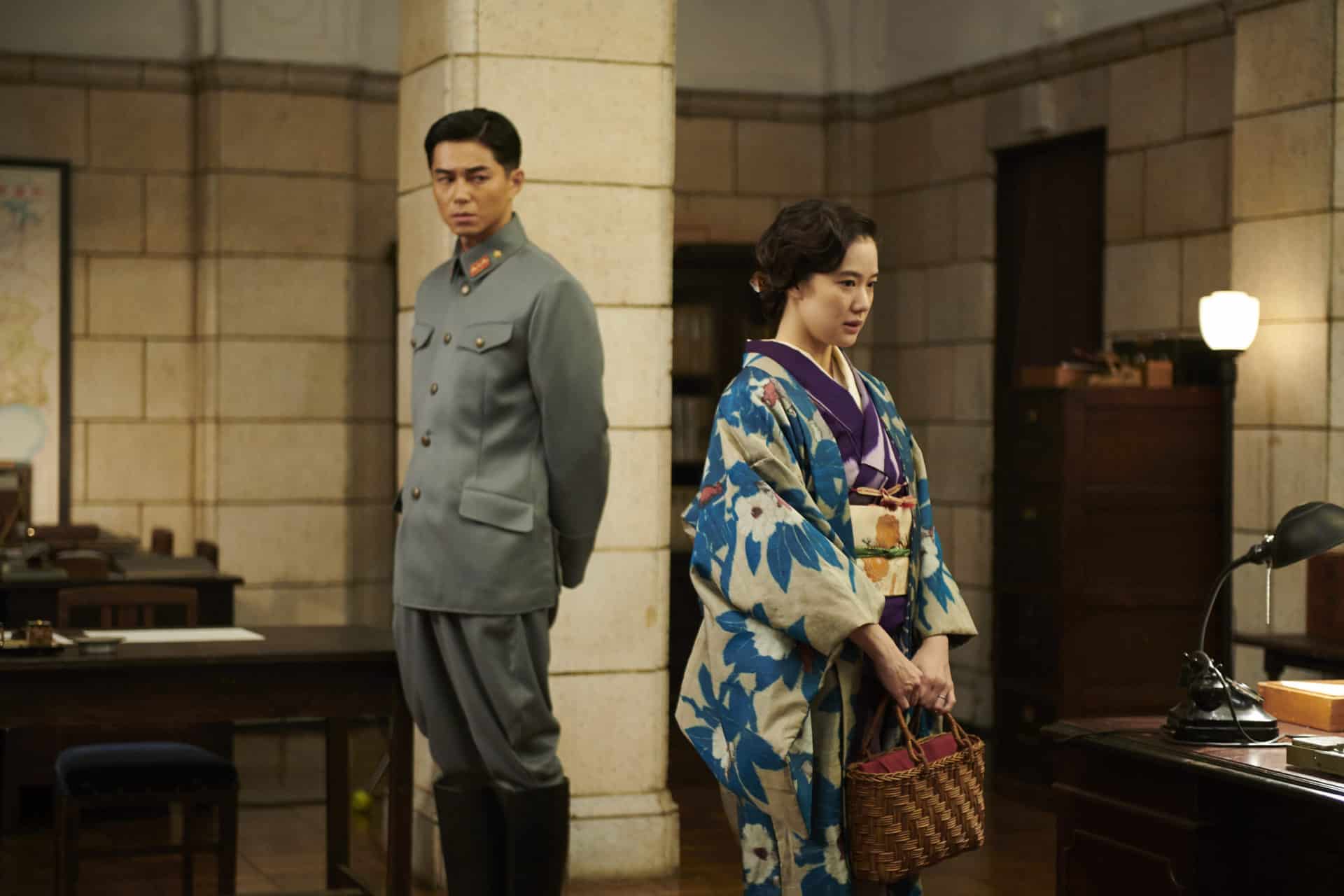
The second issue and the most significant essentially, derives from the visuals of the movie, that seem to suffer from TV aesthetics in more than one levels. The lighting is occasionally quite bad, with a number of scenes being poorly lit, the shadows not working at all, and a couple of domestic scenes that seem to suffer from a intense dimness that induces them with a totally misplaced sense of fogginess. The framing also seems questionable at moments, and in general, DP Tatsunosuke Sasaki's work is definitely subpar, to the point that faults the whole atmosphere of the film on occasion.
“Wife of a Spy” thrives on its acting and direction, and in general, emerges as a rather interesting and entertaining film. However, its significant shortcomings do not allow its traits to be fully exploited, resulting in a movie that had all the credentials to become a masterpiece but failed to do so.


